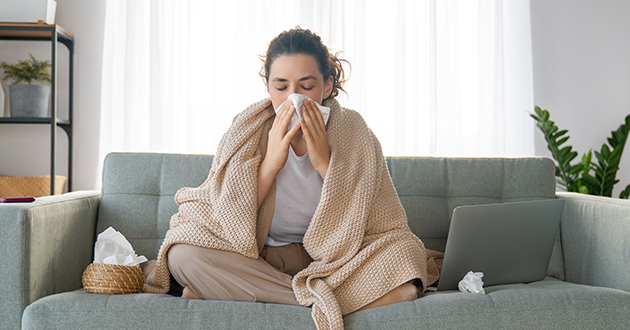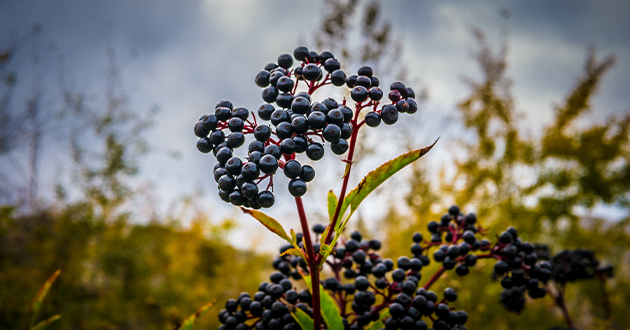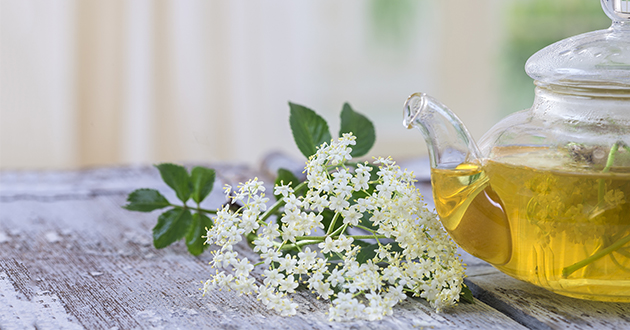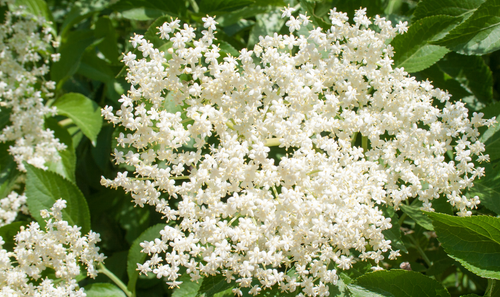Elderflower/ Elderberry An herb that can be useful during cold and flu season
Elderflower/ Elderberry An herb that can be useful during cold and flu season
What is Elderflower/Elderberry?
Elder is a native deciduous tree of European origin, but it grows well anywhere that is sunny and moderately moist and is commonly found in the United States. It has small cream-colored flowers and has long been used in Europe to treat colds and flu. The leaves, bark, and roots also have therapeutic properties, but the elderflower and fruit (berries) are used primarily for treating cold-like symptoms.

Elderflower has therapeutic properties such as diaphoretic, laxative, diuretic, anti-spasmodic, anti-rheumatic, anti-catarrhal, and expelling gas in the gastrointestinal tract.
It is especially effective for cold-like symptoms and headaches due to its excellent action on diaphoresis.
It is also effective for allergies, sinusitis, rhinitis, and bronchitis because it helps to expel catarrhs such as phlegm and runny nose. It is especially effective for sinusitis because of its strong action on the sinuses. It is also effective for rhinitis and sinusitis by reducing excessive mucus secretion due to its astringent properties. However, its mucolytic action also prevents excessive dryness of the nasal passages and sinuses.
Research has confirmed that blending elderflower with echinacea and propolis can boost the immune system and inhibit the growth of viruses.

Elderberry has an anti-rheumatic, anti-neuralgic, stimulating discharge, and gas-expelling effects.
Elderberry contains many anthocyanins, other bioflavonoids, and vitamin C. Elderberry prevents collagen breakdown, and inflammation, and promotes collagen production, thereby relieving symptoms of rheumatoid arthritis and other arthritis.
It is high in bioflavonoids and vitamin C and reduces inflammation, making it effective for hay fever and other allergies.
Elder leaves and bark have anti-inflammatory and wound-healing properties when applied externally, making them useful for injuries, insect bites, wounds, sunburn, pimples, boils, arthritis, bruises, sprains, and dermatitis.
Elderflower is a safe and effective herb for a baby's colic pain due to its ability to expel gas in the gastrointestinal tract.
Both elderflower and elderberry are expected to improve the body constitution. This is due to their effects on perspiration, diuresis, and emissions, and they enhance metabolism by gradually detoxifying toxins accumulated in the body. Elderflower works more slowly than other herbs, but it strengthens organs, especially the liver.
How to take Elderflower/ Elderberry?
Elderflower is often drunk as an herbal tea, but the fruit is used as a syrup, and the leaves and bark are used externally as a poultice or ointment.

When drinking as an herbal tea, use 2-4 tablespoons of elderflower per cup of hot water and drink about 3 cups per day for best results. Elderflower blends well with other herbs and is known to enhance the benefits of elderflower when combined with Linden flower. Drinking iced tea can also be expected to have diuretics and improve the constitution.
Elderberry is infused with 1-2 teaspoons per cup of hot water and drunk ½ cup three times per day.
You can also drink fresh elderberries as juice by boiling them with enough water to cover them for about 3 minutes and straining them. Add 1 part honey to 10 parts juice to preserve it. A glass of juice twice a day is adequate.
Warnings of Elderflower/ Elderberry
Long-term consumption of Elderflowers can decrease blood flow to the sinuses. Elder's fresh leaves, roots, and unripped fresh fruits are poisonous and can cause vomiting, diarrhea, headache, dizziness, tachycardia, and convulsions when taken internally. Most people should take Elders only with flowers or dried and ripped fruits.
* These statements have not been evaluated by the Food and Drug Administration. This product is not intended to diagnose, treat, cure, or prevent any disease.

 US Dollar
US Dollar

